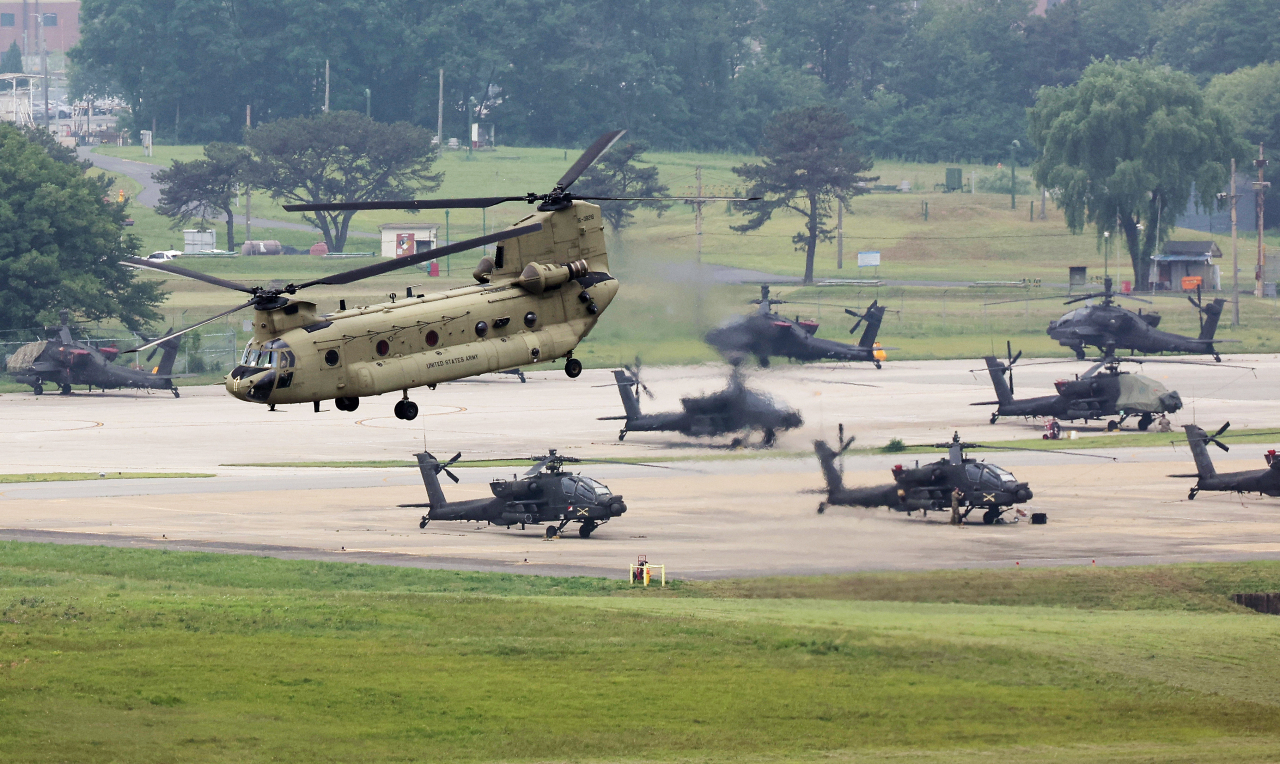 |
Boeing CH-47 Chinook helicopter is flying at USAG Humphreys on Tuesday, while negotiations on sharing the costs for stationing American troops in South Korea was held. (Yonhap) |
South Korea and the United States held a new round of negotiations Tuesday on sharing the costs for stationing American troops here.
The three-day talks through Thursday are aimed at determining how much Seoul should shoulder for the upkeep of the 28,500-strong US Forces Korea, starting in 2026.
The talks are led by Lee Tae-woo, South Korea's chief negotiator from the foreign ministry, and his US counterpart, Linda Specht from the State Department.
Tuesday's negotiations took place at the Korea Institute for Defense Analysis, joined by officials from South Korea's ministries of defense and finance and the arms procurement agency, and those from the Pentagon and the USFK.
The talks ended at around 4:30 p.m.
The first round of the talks took place in Hawaii last month.
The launch of the talks came earlier than planned, amid the view that Seoul wants an early deal to avoid potentially tough bargaining with Washington in case former President Donald Trump returns to the White House.
Washington under Trump's presidency had demanded more than a fivefold increase in Seoul's payment to US $5 billion.
Under the current six-year deal, known as the Special Measures Agreement (SMA), ending in 2025, South Korea agreed to raise the payment by 13.9 percent from 2019 to $1.03 billion for 2021 and increase the payment every year for the subsequent four years in line with the rise in Seoul's defense spending.
Seoul has called for a new deal at a "reasonable level" to ensure the conditions for the stable stationing of the USFK and to strengthen the combined defense posture.
Washington has said it seeks to pursue "a fair and equitable" outcome in the talks, as most of Seoul's contributions to the SMA are expended in South Korea's domestic economy, representing a "powerful investment" in the bilateral alliance.
Upon arriving in Seoul on Saturday, Specht said the SMA negotiations are about the "importance of the alliance and the support we give one another."
Since 1991, Seoul has partially shouldered costs under the SMA for Korean USFK workers; the construction of military installations, such as barracks, and training, educational, operational and communications facilities; and other logistical support. (Yonhap)







